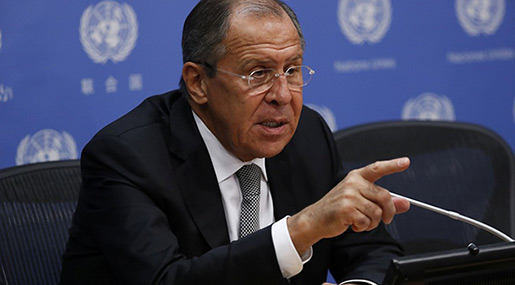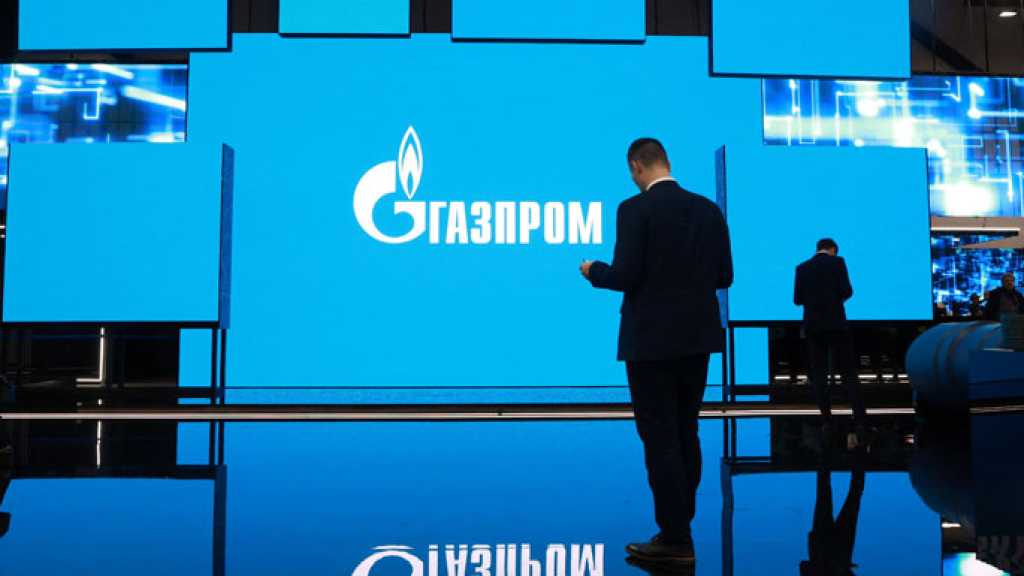
Lavrov: Moscow Concerned by US Policy on Lowering Nuclear Weapons’ Use Threshold

Local Editor
Moscow is concerned about the US policy of lowering threshold for use of nuclear weapons, Russian Foreign Minister Sergei Lavrov said.

"In the area of strategic stability, Washington prioritizes ensuring military superiority and undermining parity in its policy. Efforts are being made to deploy the global missile defense system, the capacity is being build up and NATO's military activity is nearing Russia's borders. The deepest concern is the US policy to lower the threshold for the use of nuclear weapons," Lavrov said.
Moscow is calling on Washington to jointly resolve issues related to the conversion of US carriers under the START treaty, Sergei Lavrov said.
"We have completed the process of eliminating Russian stockpiles of chemical weapons, have fulfilled all their obligations under the treaty on the further reduction of strategic offensive arms, and we urge the United States, in accordance with the procedures stipulated in this treaty, to jointly regulate the issue of re-equipping some US strategic carriers," Lavrov stressed.
"The negotiations of the United States have created more and more questions, especially amid attempts to bring down major international agreements - such as the joint comprehensive plan of action on the Iranian nuclear program, the UN decision on Middle East regulation, the Paris Climate Conference Declaration, and the basic principles of the World Trade Organization," Lavrov said at the Moscow Conference on International Security (MCIS).
"There is a tendency towards revisionism in world affairs," Lavrov added.
"At the same time, our persistent calls to start a professional conversation on confidence-building measures and countering threats in this sphere do not find a positive response either in Washington or in Brussels," the Russian Foreign Minister noted.
Russia insists that the Organization for the Prohibition of Chemical Weapons launch a substantive investigation into the alleged poisoning of Sergei Skripal and his daughter Yulia in Salisbury, England, Russian Foreign Minister Sergei Lavrov said.
"We will continue to respond adequately to unfriendly steps, but at the same time we want to establish the truth. We insist on a substantive and responsible investigation in full compliance with the provisions of the Convention on the Prohibition of Chemical Weapons. The legitimate questions set by us on the basis of this convention will not be ignored, as confirmed by a special session of the OPCW, convened by Russia on April 4, at a special session of its executive council," Lavrov said.
Earlier, the OPCW Director-General Ahmet Uzumcu said in his address to the organization's Executive Council that the results of the analysis of the samples its experts collected in Salisbury at London's request would be available by early next week. The OPCW will subsequently write a report on the analysis results and share it with the United Kingdom.
The UK delegation to the OPCW called the Wednesday Russia's proposal for a joint investigation into the poisoning of former Russian spy Sergei Skripal in the United Kingdom "perverse."
In its turn, the Russian Foreign Ministry spokeswoman Maria Zakharova said that Moscow hadn't received the conclusions of the UK government laboratory in Porton Down on the Skripal case.
The UK intelligence agent Sergei Skripal and his daughter Yulia were exposed to a harmful substance, claimed by the UK authorities to be a Novichok-class nerve agent, on March 4. The British authorities claim that the Russian state is involved in the case, as substance A234 was allegedly developed in the Soviet Union.
The Russian side has refuted the allegations and offered London assistance in the probe into Skripal's poisoning, however, the UK has rejected the proposals.
Source: News Agencies, Edited by website team
Comments

Putin: West Pushing Russia beyond Red Line
3 months ago

